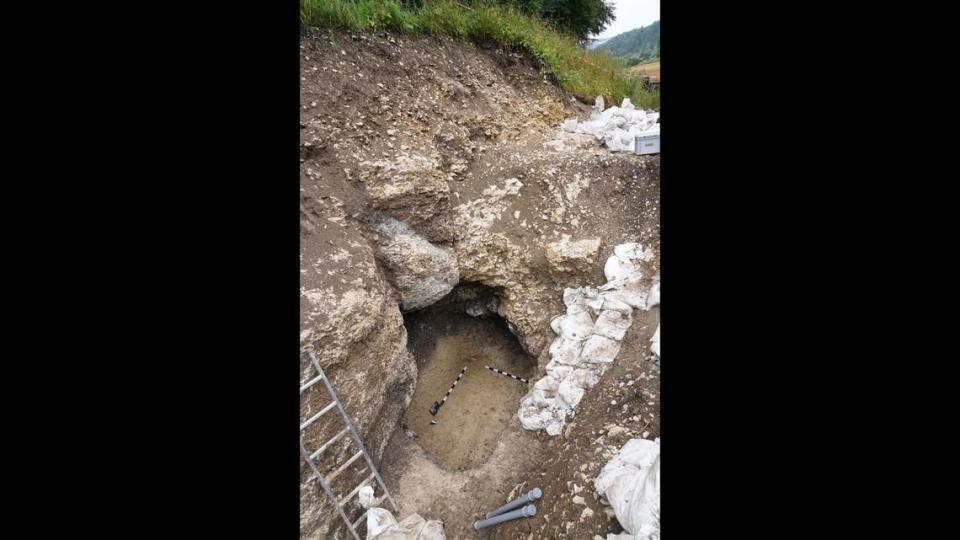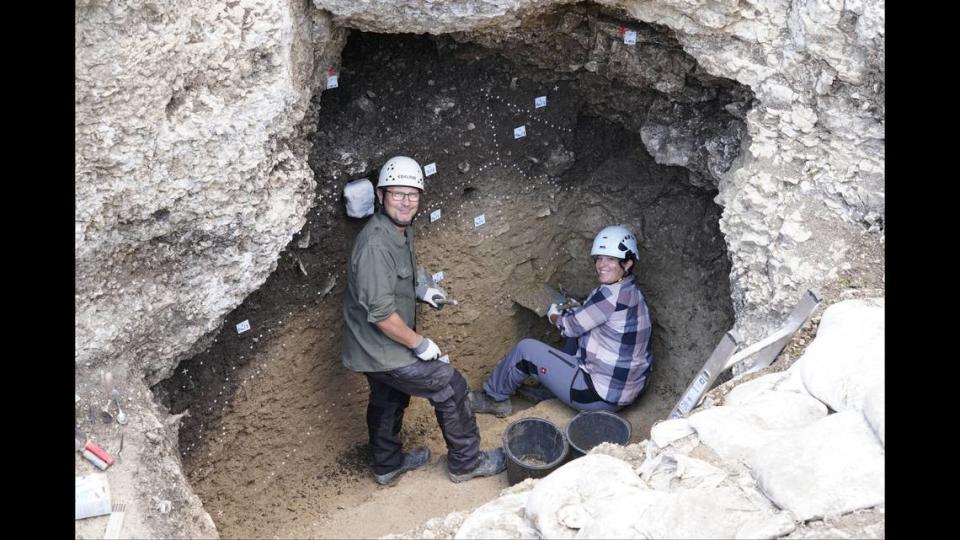14,000-year-old cave — where Ice Age hunter-gatherers lived — unearthed in Germany
It’s been 45 years since an attempt to lay sewage lines at a Paleolithic site in Germany revealed an ancient cave. Now, experts have finally discovered the entrance to the cave — and have a better understanding of its purpose.
Experts first identified the site in 1978 after a hole was made in its ceiling, according to an Aug. 2 news release from the State Office for the Preservation of Monuments in the Stuttgart Regional Council. Archaeologists determined that the cave likely dated back to between 14,000 and 16,000 years ago, but they resealed the cave after a short excavation.
Archaeologists returned to the site in 2021 in hopes of learning more about the cave, officials said in the release. It wasn’t until July 4, 2023, that the entrance to the ancient cave was finally unearthed after being almost completely blocked by sediment.

The cave appears to have been a residence for hunter-gatherers during the Ice Age, archaeologists said. It held some Ice Age stone tools and animal bones.
The discovery will grant experts greater insight into the lives of Ice Age hunter-gatherers in the area, according to Yvonne Tafelmaier, who led the excavations. Their research is set to continue next year.

The cave was discovered in the town of Engen in southwest Germany, near the border with Switzerland.
Google Translate was used to translate a news release from the State Office for the Preservation of Monuments in the Stuttgart Regional Council.
Stunning mythological artifact — left by ancient Romans — found in depths of lagoon
Ancient burials at church lead to unique finds — including dentures. See the discoveries
Pair of empty tombs discovered at 900-year-old England cathedral. Whose are they?

